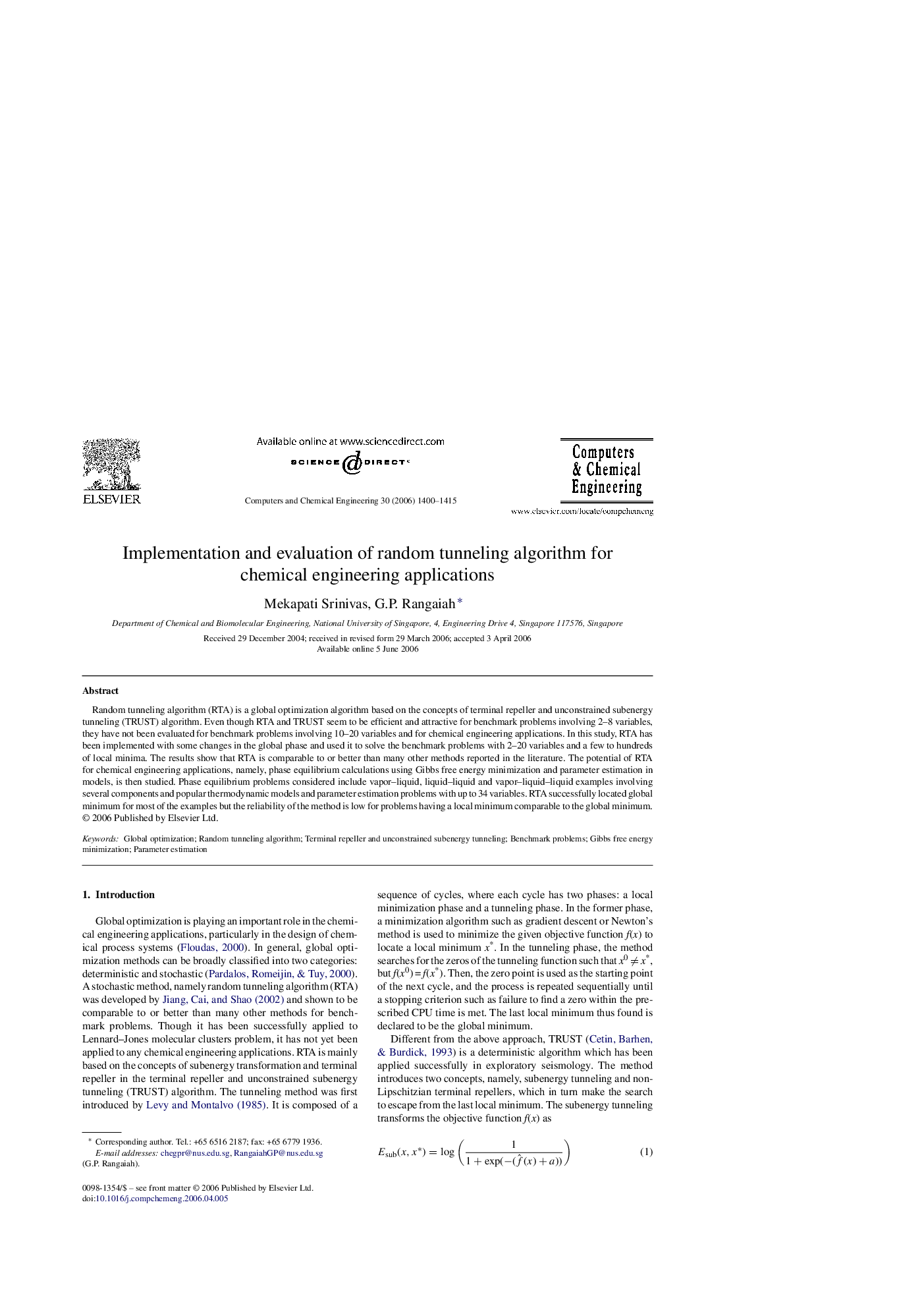| Article ID | Journal | Published Year | Pages | File Type |
|---|---|---|---|---|
| 174087 | Computers & Chemical Engineering | 2006 | 16 Pages |
Random tunneling algorithm (RTA) is a global optimization algorithm based on the concepts of terminal repeller and unconstrained subenergy tunneling (TRUST) algorithm. Even though RTA and TRUST seem to be efficient and attractive for benchmark problems involving 2–8 variables, they have not been evaluated for benchmark problems involving 10–20 variables and for chemical engineering applications. In this study, RTA has been implemented with some changes in the global phase and used it to solve the benchmark problems with 2–20 variables and a few to hundreds of local minima. The results show that RTA is comparable to or better than many other methods reported in the literature. The potential of RTA for chemical engineering applications, namely, phase equilibrium calculations using Gibbs free energy minimization and parameter estimation in models, is then studied. Phase equilibrium problems considered include vapor–liquid, liquid–liquid and vapor–liquid–liquid examples involving several components and popular thermodynamic models and parameter estimation problems with up to 34 variables. RTA successfully located global minimum for most of the examples but the reliability of the method is low for problems having a local minimum comparable to the global minimum.
